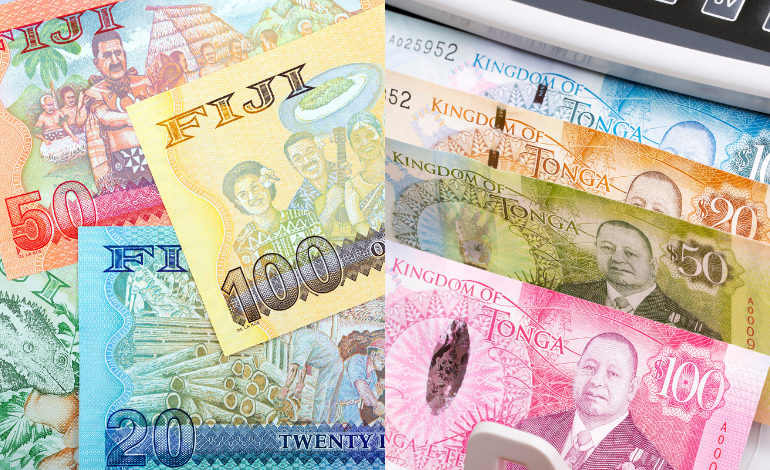Adapted from a PACNEWS report by editor Makereta Komai
The Asian Development Bank (ADB) has confirmed it will begin the process of legal and institutional due diligence to support Fiji and Tonga’s request for the bank to issue bonds in their local currencies—the Fijian dollar and Tongan pa’anga.
The announcement was made by ADB’s Director General for the Pacific Department, Emma Veve, at the JuiceIT-2025 conference held recently in Suva. Veve described the move as a major step toward expanding access to finance for Pacific businesses in their domestic markets.
“We are going through a process of all of the legal, legislative, parliamentary requirements to allow us to put a bond into your finance market,” said Veve, who is based in Manila. The move follows outreach by the ADB Treasury to Pacific Island countries with independent currencies, asking whether they would be interested in local currency bond issuance.
“Vanuatu and Samoa are both very interested,” she said, noting that while Vanuatu’s plans are slightly delayed due to recent earthquakes, Fiji and Tonga are now the frontrunners.
This new facility is designed to enable the ADB to raise funds locally and on-lend in local currency to the private sector—reducing foreign exchange risks for businesses that typically face challenges borrowing in US dollars or other major international currencies.
“In many cases, our private sector clients want to borrow in their local currency. But previously, we could only lend in larger international currencies,” Veve said. “This shifts the foreign exchange risk from local businesses to us, and we’re better equipped to manage that risk.”
The mechanism works in a similar fashion to how governments raise funds through domestic bond markets. Once ADB issues a local currency bond—purchased by domestic investors such as banks or superannuation funds—the proceeds can be channelled directly to eligible businesses within that economy.
Veve also addressed regional concerns about declining correspondent banking relationships in the Pacific, noting this as an ongoing challenge. She said the World Bank has taken the lead in system design for countries at risk of losing international banking access, while ADB will provide technical assistance and capacity-building support in partnership with governments and financial institutions.
“For countries not eligible for World Bank support, the ADB—alongside partners like the Government of Japan—will help bridge that gap,” Veve assured.
With only one major homegrown bank, Papua New Guinea’s BSP, serving multiple Pacific countries, Veve reiterated that financial vulnerability in the region remains a real concern. ADB’s local currency bond initiative marks a critical development in efforts to strengthen regional financial systems and support private sector growth.



